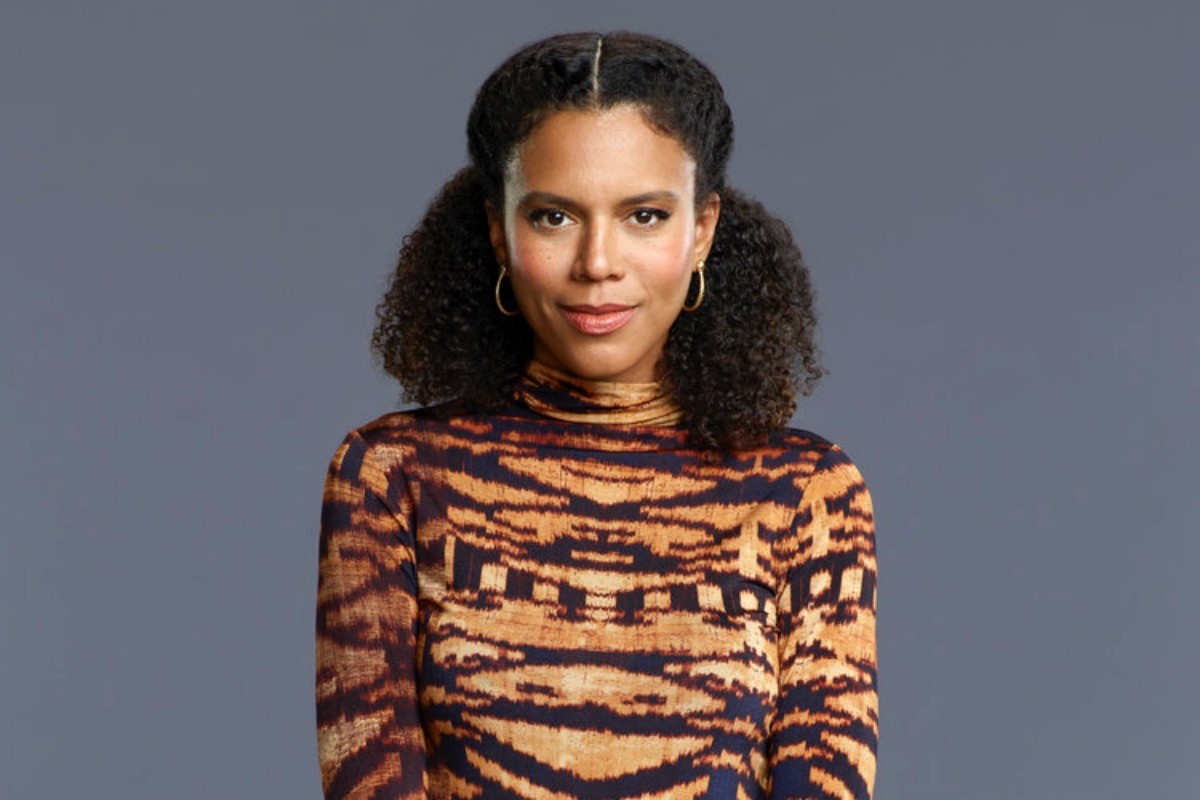Grasie Mercedes is making waves in Hollywood, not just as a talented actress but also as a powerful voice for representation. Starring as Fay in NBC’s hit show Grand Crew, Grasie Mercedes embodies the spirit of “Black joy and Black excellence” that the show champions. This Dominicana from Williamsburg, Brooklyn, brings a unique perspective to the screen, shaped by her upbringing and her experiences navigating the complexities of identity in the entertainment industry.
Growing up in a multigenerational household, Grasie Mercedes experienced a rich cultural tapestry. Raised by her mother, aunt, and grandmother, she fondly remembers her abuela, a “typical Latin Dominican grandmother” whose devotion was evident in her “shrine to Jesus.” This upbringing, coupled with Catholic schooling, grounded Mercedes in her Latin heritage. Despite being raised in the US and responding in English, her grandmother spoke to her exclusively in Spanish. Ironically, Grasie Mercedes humorously admits that her Spanish is now “kind of sucks,” though her understanding remains strong, a testament to her early immersion in the language.
Despite her quintessential Latinx upbringing, Grasie Mercedes has encountered a frustrating lack of recognition of her Latinidad in her acting career. “I never get to play Latina,” she reveals, highlighting a significant issue in Hollywood’s perception of Latino identity. She points out that “Hollywood doesn’t see Latinos who look like me,” a statement that underscores the industry’s narrow and often stereotypical view of what a Latina should look like. In over a decade in the business, she has only auditioned for a Latina role once, a stark illustration of the limited opportunities afforded to Afro-Latinas in mainstream media.
While identifying as Black and embracing African American roles, Grasie Mercedes passionately believes in the need for broader representation. She articulates the importance of showing the world the true diversity within the Latinx community, emphasizing that “we should be able to show the world that (Latinx people) are super diverse and come in all shades, hair types, and features.” She rightly points out the “lack of representation not only for Afro-Latinxs, but Indigenous and Asian Latinxs too,” advocating for a more inclusive and accurate portrayal of Latinidad on screen.
Driven by this passion for authentic representation, Grasie Mercedes is proactively creating her own projects. Her podcast, Not BLANK Enough, is a powerful platform where she delves into the nuances of identity with empathy and insight. She addresses the pervasive “universal theme, especially for people of color” of feeling inadequate or not fitting in, noting its particularly damaging impact within Latinx and Asian communities where “closeness to whiteness” is often wrongly equated with being “better, more desirable, or more beautiful.”
When it comes to creating content for TV, film, or web series, Grasie Mercedes is deliberate in centering narratives around race, gender, and identity. Drawing inspiration from her own life and community, she titled her first script “Williamsburg,” a nod to her Brooklyn roots. Her ultimate goal is to develop her own TV show that authentically explores her experiences as an Afro-Latina, further solidifying her commitment to telling diverse and underrepresented stories.
In Grand Crew, Grasie Mercedes shines as Fay, a relatable character navigating life post-divorce in a new city. As a New York transplant in Los Angeles, Fay’s journey of self-discovery and friendship resonates with audiences. Mercedes brings comedic flair to the role, engaging in the show’s lighthearted “hijinks,” such as getting lost while hiking, participating in a family pie fight, and even comically wielding a samurai sword. These moments of levity are interwoven with deeper themes of friendship and personal growth, making Fay a compelling and multifaceted character.
While the first season of Grand Crew offers glimpses into Fay’s personality, Grasie Mercedes expresses hope that future seasons will delve deeper into her Latinidad. She emphasizes that the show is fundamentally about “exploring the Black experience for all different kinds of Black people,” suggesting that there is ample space to explore the Afro-Latina experience within this framework.
It is noteworthy that African American creators are actively creating space for Afro-Latinxs in mainstream media, while the broader “Latino establishment” often remains silent on issues of Afro-Latinx representation. Grasie Mercedes points out the disparity, stating, “Right now in Hollywood, there are so many Latinos who are doing it, making shows and are showrunners. But they’re almost all white Latinxs.” She underscores the urgent need for “Indigenous and Black Latinxs (to have) the opportunity to develop their own shows” to ensure a wider range of stories and experiences are reflected on screen, moving beyond the homogenous narratives that currently dominate.
Representation on network television, which still commands a significant portion of viewership, is a powerful platform. However, Grasie Mercedes and Grand Crew have not received the attention they deserve from the Latinx press. Despite ongoing conversations about broadening the definition of Latinidad, the lack of support for Afro-Latinx creatives like Grasie Mercedes highlights a persistent issue of erasure within the community.
It is crucial for Latinx viewers and allies to actively support Grasie Mercedes and Grand Crew. By tuning in and amplifying her work, audiences can demonstrate the demand for diverse representation and ensure that Afro-Latinx stories are not only told but also celebrated. Grasie Mercedes is not just an actress; she is a trailblazer who is paving the way for a more inclusive and authentic Hollywood.
